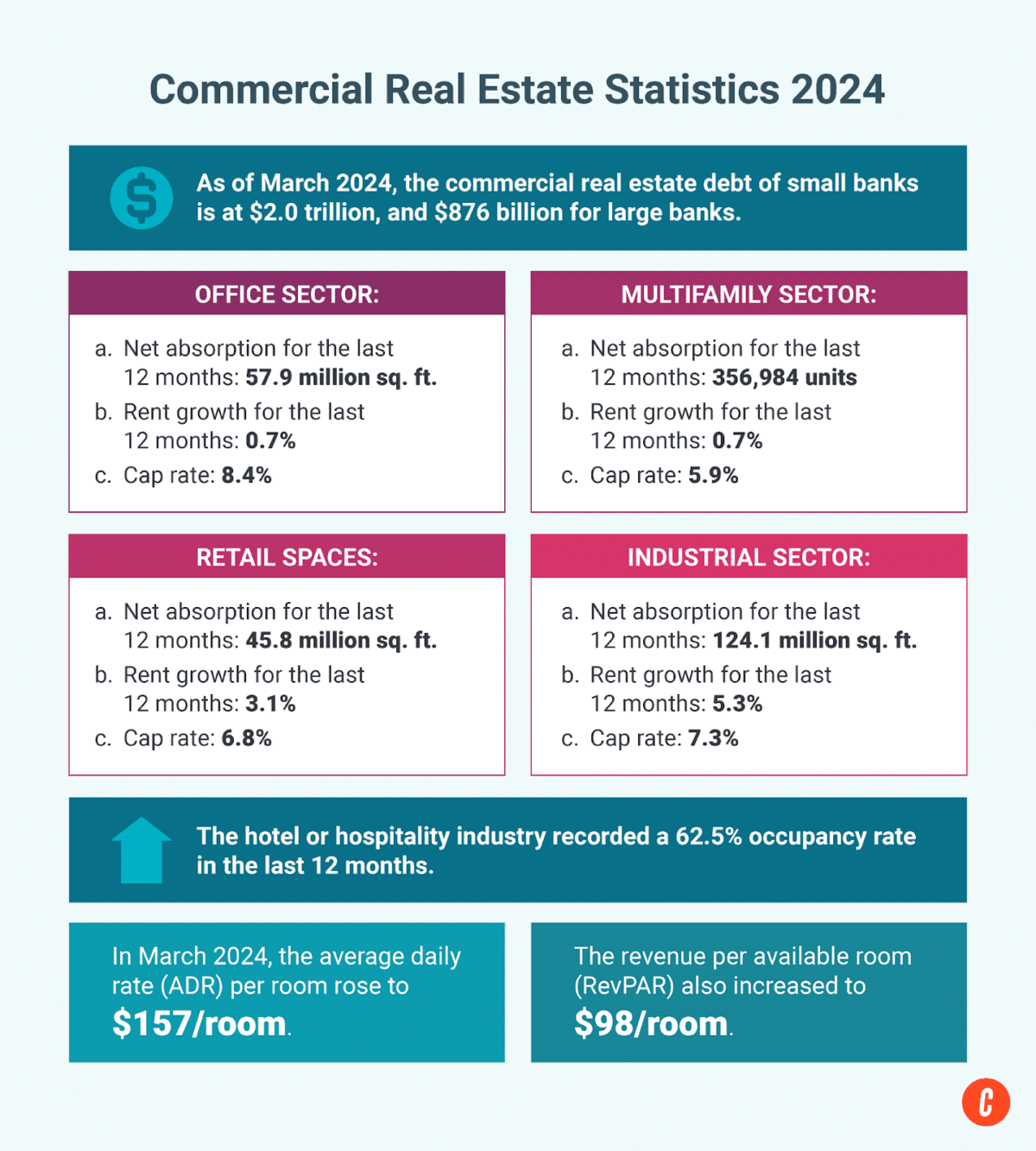- Is Anyone Having Success Running Ads for Real Estate Agents/Brokers?
- Are Facebook ads worth it for real estate agents?
- Is there a high demand for real estate brokers?
-
What is the success rate of commercial real estate agents?
- What Factors Influence the Success Rate of Commercial Real Estate Agents?
- How Does Experience Affect the Success Rate of Commercial Real Estate Agents?
- What Role Does Networking Play in the Success of Commercial Real Estate Agents?
- How Important Are Marketing Skills for Commercial Real Estate Agents?
- What Are the Common Challenges Faced by Commercial Real Estate Agents?
- Who is the fastest growing real estate brokerage?
- Frequently Asked Questions from Our Community
Running ads for real estate agents and brokers can be a challenging yet rewarding endeavor in today’s competitive market. With the rise of digital platforms, targeted advertising has become a powerful tool to connect agents with potential buyers and sellers. However, success often hinges on understanding the nuances of ad strategies, audience segmentation, and platform algorithms. This article explores real-world experiences and insights from professionals who have effectively leveraged ads to grow their real estate businesses. Whether you’re a seasoned agent or new to the industry, discovering what works—and what doesn’t—can help you optimize your campaigns and achieve measurable results.
Is Anyone Having Success Running Ads for Real Estate Agents/Brokers?
Running ads for real estate agents or brokers can be highly effective when done correctly. Success in this field often depends on understanding the target audience, crafting compelling ad copy, and leveraging the right platforms. Below, we explore key strategies and insights to help real estate professionals achieve better results with their advertising efforts.
See Also How Facebook Ads Actually Work.
How Facebook Ads Actually Work.1. What Platforms Are Most Effective for Real Estate Ads?
When it comes to running ads for real estate, Facebook, Instagram, and Google Ads are among the most effective platforms. Facebook and Instagram allow for highly targeted ads based on demographics, interests, and behaviors, making them ideal for reaching potential homebuyers or sellers. Google Ads, on the other hand, is excellent for capturing users actively searching for real estate services.
| Platform | Key Features |
|---|---|
| Advanced targeting, visual ads, and retargeting options. | |
| High engagement, visually appealing ads, and influencer collaborations. | |
| Google Ads | Search intent targeting, pay-per-click model, and local SEO integration. |
2. How to Create Compelling Ad Copy for Real Estate?
Creating compelling ad copy is crucial for capturing attention and driving action. Focus on highlighting unique selling points, such as location, property features, or competitive pricing. Use action-oriented language like Find Your Dream Home Today or Sell Your Home Faster with Us. Including testimonials or success stories can also build trust and credibility.
See Also Social Media for Real Estate: What to Post?
Social Media for Real Estate: What to Post?3. What Types of Ads Work Best for Real Estate?
The most effective ad types for real estate include video ads, carousel ads, and lead generation ads. Video ads can showcase property tours, while carousel ads allow multiple images to be displayed in a single ad. Lead generation ads are perfect for capturing potential clients' information directly through the platform.
| Ad Type | Best Use Case |
|---|---|
| Video Ads | Showcasing property tours or client testimonials. |
| Carousel Ads | Displaying multiple properties or features in one ad. |
| Lead Generation Ads | Collecting potential client information directly. |
4. How to Target the Right Audience for Real Estate Ads?
Targeting the right audience is essential for maximizing ROI. Use demographic data (age, income, location) and behavioral insights (homebuying intent, recent searches) to refine your audience. For example, target first-time homebuyers with ads about affordable starter homes or retirees with ads about downsizing options.
See Also Marketing My Friend's Meal Prep Business.
Marketing My Friend's Meal Prep Business.5. What Metrics Should You Track for Real Estate Ads?
Tracking the right metrics ensures your ads are performing well. Key metrics include click-through rate (CTR), cost per lead (CPL), and conversion rate. These metrics help you understand how effectively your ads are driving traffic and generating leads.
| Metric | Why It Matters |
|---|---|
| Click-Through Rate (CTR) | Measures how often people click on your ad. |
| Cost Per Lead (CPL) | Indicates the cost-effectiveness of your ad campaigns. |
| Conversion Rate | Shows how many leads turn into actual clients. |
Are Facebook ads worth it for real estate agents?
Why Facebook Ads Are Effective for Real Estate Agents
Facebook ads are a powerful tool for real estate agents due to their ability to target specific audiences and generate leads. Here’s why they work:
See Also Advertising for Small Asphalt Buisness.
Advertising for Small Asphalt Buisness.- Advanced Targeting: Facebook allows agents to target users based on location, income, interests, and even life events like moving or buying a home.
- Cost-Effective: Compared to traditional advertising, Facebook ads are relatively affordable and offer a high return on investment (ROI).
- Visual Appeal: Real estate is a visual industry, and Facebook’s platform is ideal for showcasing property photos and videos.
How to Create High-Converting Facebook Ads for Real Estate
To maximize the effectiveness of Facebook ads, real estate agents should follow these steps:
- Use High-Quality Visuals: Include professional photos and videos of properties to grab attention.
- Craft Compelling Copy: Write clear, concise, and engaging ad text that highlights the property’s unique features.
- Include a Strong Call-to-Action (CTA): Encourage users to take action, such as scheduling a viewing or contacting the agent.
Common Mistakes to Avoid in Real Estate Facebook Ads
While Facebook ads can be highly effective, certain mistakes can reduce their impact. Avoid these pitfalls:
- Poor Targeting: Failing to narrow down the audience can result in wasted ad spend.
- Overloading Ads with Text: Facebook penalizes ads with too much text, so keep it concise.
- Ignoring Analytics: Not tracking ad performance can prevent optimization and improvement.
Measuring the Success of Facebook Ads for Real Estate
To determine if Facebook ads are worth it, agents should track key metrics:
- Click-Through Rate (CTR): Measures how often users click on the ad.
- Cost Per Lead (CPL): Tracks how much it costs to generate a lead.
- Conversion Rate: Indicates the percentage of users who take the desired action.
Alternatives to Facebook Ads for Real Estate Marketing
While Facebook ads are effective, agents can also explore other marketing strategies:
- Google Ads: Targets users actively searching for real estate.
- Instagram Ads: Leverages visual content to reach a younger audience.
- Email Marketing: Engages existing leads and nurtures relationships.
Is there a high demand for real estate brokers?

What Factors Drive the Demand for Real Estate Brokers?
The demand for real estate brokers is influenced by several key factors:
- Market conditions: In a booming real estate market, more buyers and sellers seek professional assistance, increasing demand for brokers.
- Complexity of transactions: Real estate deals involve legal, financial, and regulatory complexities, making brokers essential for smooth transactions.
- Urbanization: As cities expand, the need for brokers to navigate competitive urban markets grows.
How Does Technology Impact the Demand for Real Estate Brokers?
Technology has both challenged and enhanced the role of real estate brokers:
- Online platforms: While some buyers and sellers use online tools, many still rely on brokers for personalized advice and negotiation.
- Data analysis: Brokers who leverage technology to analyze market trends and provide insights are in higher demand.
- Virtual tours: Brokers who adapt to virtual tools for property showings remain competitive in the market.
What Are the Benefits of Hiring a Real Estate Broker?
Hiring a real estate broker offers numerous advantages:
- Market expertise: Brokers provide insights into pricing, neighborhoods, and market trends.
- Negotiation skills: They help secure better deals for buyers and sellers.
- Time savings: Brokers handle paperwork, property searches, and legal requirements, saving clients time.
What Challenges Do Real Estate Brokers Face?
Despite the demand, real estate brokers encounter several challenges:
- Competition: The industry is highly competitive, with many brokers vying for clients.
- Market fluctuations: Economic downturns can reduce demand for real estate services.
- Client expectations: Clients often expect high levels of service and quick results.
How Does Licensing Affect the Demand for Real Estate Brokers?
Licensing plays a significant role in the demand for real estate brokers:
- Credibility: Licensed brokers are seen as more trustworthy and professional.
- Legal compliance: Licensing ensures brokers adhere to industry regulations, reducing risks for clients.
- Specialization: Licensed brokers often have specialized knowledge, making them more valuable in niche markets.
What is the success rate of commercial real estate agents?

What Factors Influence the Success Rate of Commercial Real Estate Agents?
The success rate of commercial real estate agents is influenced by several key factors. These include:
- Market Knowledge: Agents with a deep understanding of local and national market trends are more likely to succeed.
- Networking Skills: Building strong relationships with clients, investors, and other professionals is crucial.
- Negotiation Skills: Effective negotiation can significantly impact the outcome of deals.
- Marketing Strategies: Utilizing advanced marketing techniques to attract clients and close deals.
- Experience: Seasoned agents often have a higher success rate due to their accumulated knowledge and expertise.
How Does Experience Affect the Success Rate of Commercial Real Estate Agents?
Experience plays a pivotal role in determining the success rate of commercial real estate agents. Key points include:
- Deal Volume: Experienced agents have handled more transactions, giving them a better understanding of the process.
- Client Trust: Long-standing agents often have a loyal client base that trusts their judgment.
- Problem-Solving: Experienced agents are better equipped to handle unexpected issues during transactions.
- Market Insight: They can anticipate market shifts and advise clients accordingly.
- Reputation: A strong reputation can lead to more referrals and business opportunities.
What Role Does Networking Play in the Success of Commercial Real Estate Agents?
Networking is essential for the success of commercial real estate agents. Important aspects include:
- Client Acquisition: Building a broad network helps in acquiring new clients through referrals.
- Industry Connections: Strong relationships with other professionals can facilitate smoother transactions.
- Market Intelligence: Networking provides access to valuable market insights and trends.
- Collaboration Opportunities: Partnerships with other agents or firms can lead to larger deals.
- Reputation Building: A well-connected agent is often seen as more credible and reliable.
How Important Are Marketing Skills for Commercial Real Estate Agents?
Marketing skills are crucial for the success of commercial real estate agents. Key elements include:
- Online Presence: A strong online presence through websites and social media can attract more clients.
- Targeted Advertising: Effective advertising strategies can reach the right audience.
- Branding: Building a recognizable brand can differentiate an agent from competitors.
- Content Marketing: Providing valuable content can establish an agent as an industry expert.
- Client Engagement: Engaging with clients through various marketing channels can build long-term relationships.
What Are the Common Challenges Faced by Commercial Real Estate Agents?
Commercial real estate agents face several challenges that can impact their success rate. These include:
- Market Volatility: Fluctuating market conditions can make it difficult to predict outcomes.
- Client Expectations: Meeting high client expectations requires skill and experience.
- Competition: A highly competitive market can make it challenging to stand out.
- Regulatory Changes: Keeping up with changing regulations can be time-consuming.
- Economic Factors: Economic downturns can reduce the number of available deals.
Who is the fastest growing real estate brokerage?

What Defines the Fastest Growing Real Estate Brokerage?
The fastest-growing real estate brokerage is typically defined by its rapid expansion in terms of agent count, market share, and geographic reach. Key factors include:
- Agent recruitment: The ability to attract and retain top-performing agents.
- Technology adoption: Utilizing advanced tools and platforms to streamline operations and enhance client experiences.
- Market penetration: Expanding into new regions or dominating existing markets.
Which Brokerage is Currently Leading in Growth?
As of recent data, eXp Realty is widely recognized as the fastest-growing real estate brokerage. Its growth is driven by:
- Cloud-based model: Operating virtually reduces overhead costs and allows for global scalability.
- Revenue sharing: Agents earn a share of the company’s revenue, incentivizing growth.
- Agent-centric approach: Offering competitive commissions and support systems.
What Strategies Do Fast-Growing Brokerages Use?
Fast-growing brokerages employ innovative strategies to maintain their momentum, such as:
- Leveraging technology: Using CRM systems, AI tools, and virtual platforms to enhance efficiency.
- Focusing on agent satisfaction: Providing training, marketing resources, and financial incentives.
- Expanding geographically: Entering underserved markets or regions with high demand.
How Does eXp Realty Compare to Traditional Brokerages?
eXp Realty stands out from traditional brokerages due to its unique approach, including:
- Virtual infrastructure: Eliminating the need for physical offices, reducing costs, and increasing flexibility.
- Stock options for agents: Offering equity in the company as part of compensation.
- Global reach: Operating in multiple countries, unlike many traditional brokerages.
What Challenges Do Fast-Growing Brokerages Face?
Despite their success, fast-growing brokerages encounter challenges such as:
- Maintaining quality: Ensuring consistent service standards as the brokerage scales.
- Regulatory compliance: Navigating different laws and regulations in various markets.
- Agent retention: Keeping agents satisfied and motivated amidst rapid growth.
Frequently Asked Questions from Our Community
What are the most effective ad strategies for real estate agents and brokers?
Running successful ads for real estate agents and brokers often involves a combination of targeted advertising and compelling content. Platforms like Facebook, Instagram, and Google Ads allow you to target specific demographics, such as first-time homebuyers, luxury property seekers, or renters. Utilizing high-quality visuals, such as professional photos and virtual tours, can significantly boost engagement. Additionally, incorporating client testimonials and success stories can build trust and credibility with potential clients.
How can real estate agents measure the success of their ad campaigns?
Measuring the success of ad campaigns is crucial for real estate professionals. Key performance indicators (KPIs) such as click-through rates (CTR), conversion rates, and cost per lead (CPL) are essential metrics to track. Tools like Google Analytics and Facebook Ads Manager provide detailed insights into how your ads are performing. Additionally, tracking lead quality and follow-up conversions can help determine the overall return on investment (ROI) of your advertising efforts.
What types of ad content resonate best with real estate audiences?
Content that resonates with real estate audiences often includes local market insights, property highlights, and educational content. For example, ads showcasing neighborhood guides, mortgage tips, or market trends can position you as a knowledgeable and trustworthy agent. Video content, such as property walkthroughs or client interviews, tends to perform exceptionally well due to its engaging nature. Personalizing your ads to reflect the unique needs of your target audience can also enhance their effectiveness.
Are there any common mistakes to avoid when running real estate ads?
One common mistake is failing to define a clear target audience, which can lead to wasted ad spend and low engagement. Another pitfall is using low-quality visuals or generic ad copy, which can make your ads blend in rather than stand out. Additionally, neglecting to optimize for mobile devices can result in missed opportunities, as many users browse real estate listings on their phones. Lastly, not tracking and analyzing ad performance can prevent you from making data-driven adjustments to improve your campaigns over time.
Leave a Reply


Articles of interest